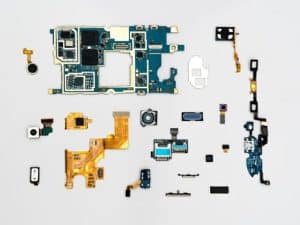The Role of Social Media in Modern Education
The role of social media in modern education has been a heavily debated topic in recent years. With the rise of technology and the widespread use of social media platforms, there has been a shift in the way education is delivered and received. Some argue that social media has had a negative impact on education, while others believe it has brought about numerous benefits. In this article, we will explore the role of social media in modern education and its impact on students and teachers.
Benefits of Social Media in Education
1. Enhanced Communication
Social media has revolutionized the way we communicate, and this holds true for education as well. With the help of social media platforms like Facebook, Twitter, and Instagram, students and teachers can communicate with each other in real-time, regardless of their location. This has made it easier for students to connect with their teachers, ask questions, and get quick responses.
2. Increased Engagement
Social media has a way of capturing and retaining our attention, and this can be leveraged in education as well. By incorporating social media in their lesson plans, teachers can make learning more interactive and engaging for students. This can be done by organizing class discussions and debates on social media platforms or by using various educational tools available on social media.
3. Access to a Vast Amount of Information
Social media platforms offer a wealth of information at our fingertips. Students can use social media to conduct research, gather information, and enhance their knowledge on a particular subject. This eliminates the need for physical textbooks and opens up endless possibilities for learning.
4. Opportunity for Collaboration
Social media has made it possible for students to collaborate on projects and assignments, even if they are not physically present with each other. This fosters teamwork and encourages students to learn from each other. It also breaks down geographical barriers and allows students from different parts of the world to work together.
5. Promotes Creativity and Self-Expression
Social media platforms like YouTube, Instagram, and TikTok have become popular avenues for showcasing creativity and self-expression. Students can use these platforms to showcase their skills, express their thoughts and opinions, and even create educational content. This allows students to unleash their creativity and gain a sense of satisfaction and confidence.
The Dark Side of Social Media in Education
1. Distraction
The biggest concern with using social media in education is the potential for distraction. With multiple social media platforms available, students may find it difficult to focus on their studies and may be tempted to check their social media accounts frequently. This can lead to a decline in academic performance.
2. Cyberbullying
Social media has made it easier for students to connect with each other, but it has also increased the risk of cyberbullying. Online bullying can have a severe impact on a student’s mental health and well-being, leading to low self-esteem, depression, and even self-harm. It is essential for educators to monitor social media activity and take necessary actions to prevent cyberbullying.
3. Spread of Misinformation
Social media has also become a breeding ground for misinformation and fake news. This can have a harmful impact on students, as they may believe false information and base their understanding on inaccurate facts. It is crucial for teachers to educate students on how to verify information and encourage them to fact-check before sharing anything on social media.
4. Privacy Concerns
Social media platforms collect vast amounts of personal data from its users, which can be a cause for privacy concerns. With students using social media as a part of their education, it is important to educate them on online privacy and how to keep their personal information safe and secure.
The Future of Social Media in Education
Regardless of the controversies surrounding social media in education, it is evident that it has become a vital tool in modern education. As technology continues to advance, the role of social media in education is only expected to grow. It is crucial for educators to embrace technology and use social media in a responsible and effective manner to enhance the learning experience for students.
In conclusion, social media has had a significant impact on modern education. It has changed the way students and teachers communicate, offered new ways of learning, and opened up endless opportunities for collaboration and creativity. However, it is essential to address the potential negative effects and take necessary measures to ensure responsible use of social media in education.



